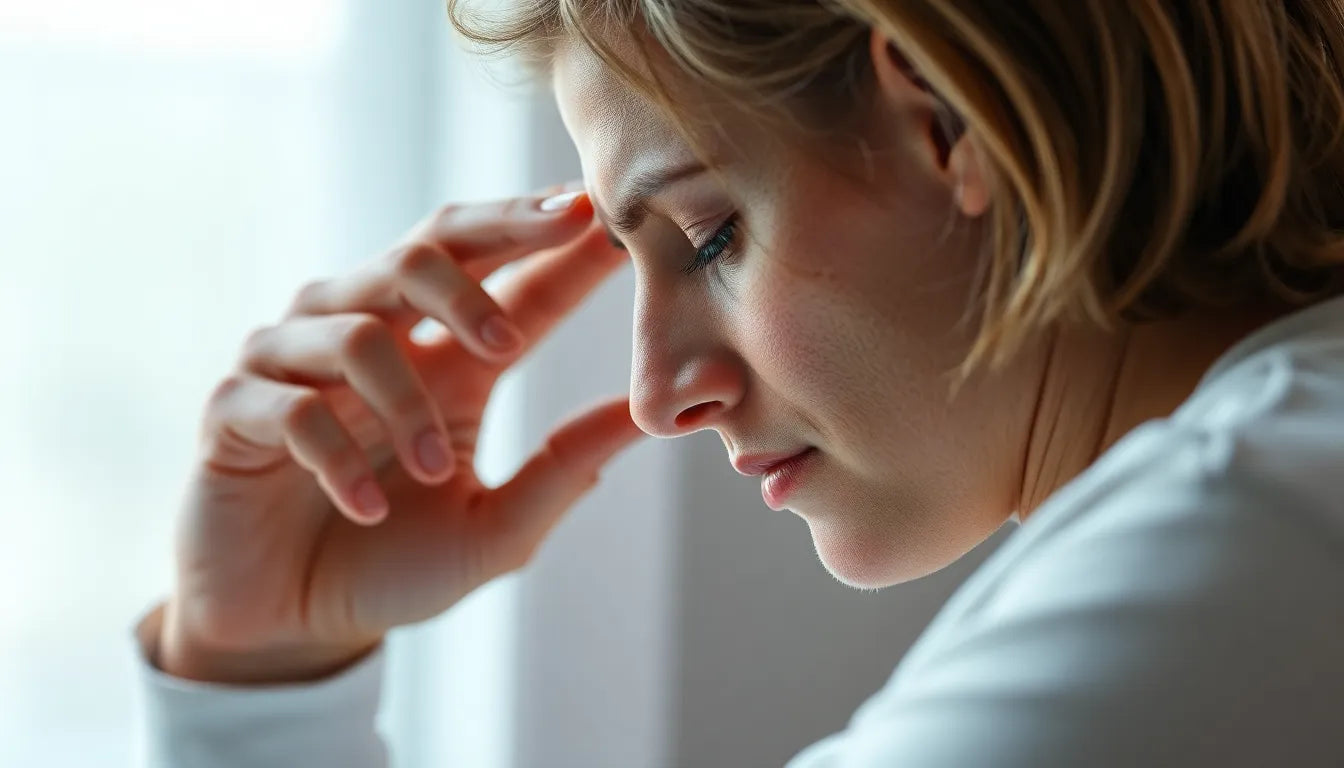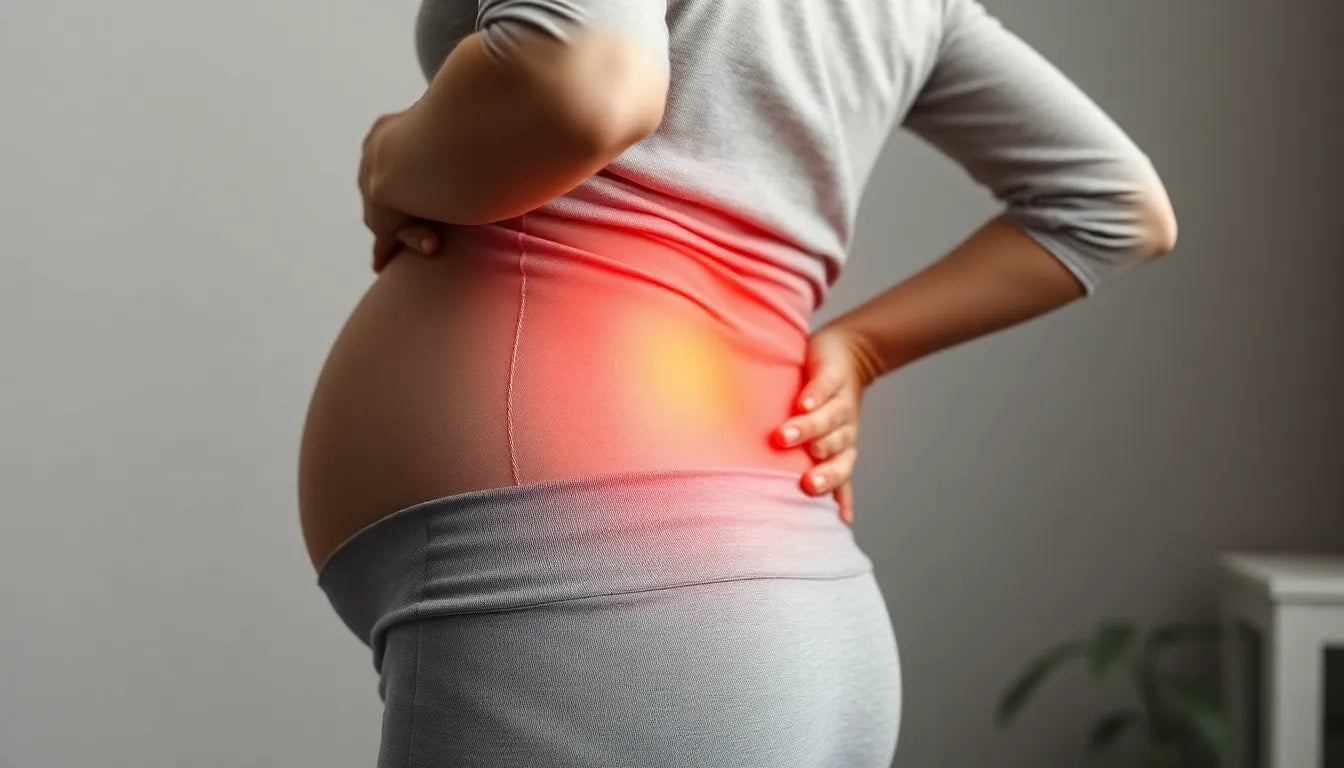Experiencing lower back pain while frequently feeling the urge to urinate can be both uncomfortable and concerning. These symptoms, when occurring together, can be unsettling and often lead individuals to wonder about the potential underlying health issues. Understanding the causes behind this combination of symptoms is crucial, as it can help in identifying whether the condition is benign or requires immediate medical attention.
The aim of this blog post is to delve into the possible reasons for experiencing both lower back pain and frequent urination. We will explore a variety of potential causes, ranging from common urinary tract infections to more serious health conditions. Additionally, we will provide insights into when it is essential to seek medical advice and offer practical tips for managing and preventing these symptoms.
Understanding the importance of early symptom recognition
Recognizing the early signs of lower back pain coupled with frequent urination is vital for maintaining overall health and well-being. While some causes of these symptoms might be relatively harmless, others could indicate more serious health issues that require prompt medical intervention. For instance, urinary tract infections such as pyelonephritis and cystitis are among the most common causes of these symptoms. Pyelonephritis, an infection of the kidney, can lead to severe lower back pain, fever, and chills, and it necessitates immediate antibiotic treatment. On the other hand, cystitis, more prevalent in women, is characterized by pain above the lower back and a burning sensation during urination.
In some cases, these symptoms could be linked to other medical conditions such as herniated discs, which can impact nerves associated with bladder function, or an enlarged prostate in men, which can lead to urinary issues and back pain. Additionally, factors like constipation and obesity can also contribute to these symptoms, highlighting the need for a comprehensive understanding of the potential causes.
By gaining a better understanding of the symptoms and their implications, individuals can make informed decisions about their health. This knowledge not only aids in identifying when to seek medical help but also empowers individuals to take proactive steps in managing and preventing these discomforts. In the following sections, we will explore these causes in greater detail and provide practical advice to help alleviate and manage these symptoms effectively.
common causes of lower back pain and frequent urination
When dealing with the dual symptoms of lower back pain and frequent urination, it's crucial to consider several common medical causes. Among the most prevalent are urinary tract infections (UTIs), which can manifest in different forms, such as pyelonephritis and cystitis.
urinary tract infections (UTIs)
UTIs are a leading cause of the symptoms we're discussing. Specifically, pyelonephritis, or kidney infection, is characterized by severe lower back pain, fever, chills, and painful urination. This condition requires immediate antibiotic treatment to prevent complications. On the other hand, cystitis, often seen in women, presents with pain above the lower back, frequent urination, and a burning sensation. While less severe than pyelonephritis, cystitis also benefits from increased fluid intake and sometimes antibiotics.
other medical causes
Beyond UTIs, there are other medical conditions that could explain these symptoms. A herniated disc might be responsible, as it can affect nerves that play a role in bladder function. In men, an enlarged prostate can exert pressure on the bladder, leading to urinary symptoms and associated back pain. Additionally, lifestyle factors such as constipation and obesity are known contributors, as they can increase pressure on the lower back and bladder.
serious health conditions to consider
While it's essential to consider common causes, it's equally important to be aware of serious health conditions that could be indicated by these symptoms. Though rare, cancers such as bladder, kidney, or prostate cancer can manifest with similar symptoms. Warning signs include blood in the urine and persistent pain, which necessitate prompt medical evaluation.
Another condition to be mindful of is glomerulonephritis, a type of kidney inflammation. This condition can lead to back pain and altered urine output, often accompanied by blood or protein in the urine and swelling in the body. These symptoms should not be ignored, as they require medical attention to prevent further health complications.
practical advice for managing symptoms
Managing these symptoms effectively involves a combination of lifestyle modifications and knowing when to seek medical help. Maintaining a healthy weight, ensuring proper hydration, and engaging in regular physical activity can alleviate some of the discomfort associated with these symptoms. Additionally, practicing good hygiene can help prevent infections that might exacerbate the condition.
when to seek medical help
It's crucial to know when to consult a healthcare professional. Persistent pain, blood in the urine, fever, or symptoms that worsen despite self-care measures are clear indicators that medical advice is needed. Early diagnosis and treatment can prevent complications and improve outcomes.
In the next section, we will continue to explore additional factors that can influence these symptoms, including ergonomic and musculoskeletal considerations, and provide further preventive measures to help you manage and prevent these health issues.
ergonomic and musculoskeletal considerations
While medical conditions are a primary concern, it's also important to consider how ergonomic and musculoskeletal factors can influence lower back pain and frequent urination. Poor posture, especially when sitting for prolonged periods, can exacerbate back pain. This discomfort can, in turn, affect bladder function, leading to increased urinary frequency.

Lumbar support belt
Provides support and relief for lower back pain; ideal for daily activities, sciatica or herniated discs.
Improving workplace ergonomics can significantly alleviate these symptoms. Ensure that your chair supports your lower back properly and that your desk is at a comfortable height. Regular breaks to stretch and adjust your posture can also help reduce strain on your back.
Additionally, proper lifting techniques are crucial in preventing back injuries that could contribute to pain. Always lift with your legs, not your back, and avoid twisting your body while carrying heavy objects. These simple adjustments can make a substantial difference in managing and preventing lower back pain.

Men's Posture Shirt™ - White
Patented shirt designed to activate muscles, improve posture & help reduce back and shoulder pain.
preventive measures
diet and hydration
A balanced diet and adequate hydration play vital roles in preventing both urinary and back issues. Consuming a variety of nutrients supports overall health and can help maintain a healthy weight, reducing stress on the lower back. Adequate fluid intake is essential for flushing out bacteria from the urinary tract, thereby preventing infections that could exacerbate symptoms.
hygiene and self-care
Maintaining good personal hygiene is crucial in preventing infections that can cause or worsen symptoms. Regularly cleaning the genital area and urinating after intercourse can help reduce the risk of urinary tract infections. Additionally, wearing breathable cotton underwear and avoiding tight-fitting clothes can help maintain a healthy environment for the urinary tract.
frequently asked questions
What are the most common causes of lower back pain and frequent urination?
The most common causes include urinary tract infections, such as pyelonephritis and cystitis, as well as conditions like herniated discs and enlarged prostate. These conditions can lead to discomfort and require appropriate management or treatment.
When should I see a doctor for these symptoms?
Seek medical attention if you experience persistent pain, blood in urine, fever, or if symptoms worsen despite self-care measures. Early intervention can prevent complications and improve outcomes.
Can these symptoms indicate something serious like cancer?
While rare, these symptoms can be associated with serious conditions like bladder, kidney, or prostate cancer. Persistent or severe symptoms should be evaluated by a healthcare professional to rule out serious health issues.
What self-care measures can I take to alleviate symptoms?
Maintain a healthy weight, stay hydrated, practice good hygiene, and ensure proper posture and ergonomics in daily activities. These measures can help manage symptoms and improve overall health.
How can lifestyle changes help manage these symptoms?
Lifestyle modifications such as regular exercise, a balanced diet, and proper hydration can help manage and prevent symptoms. These changes support overall health and can reduce the risk of developing conditions that lead to lower back pain and frequent urination.


















